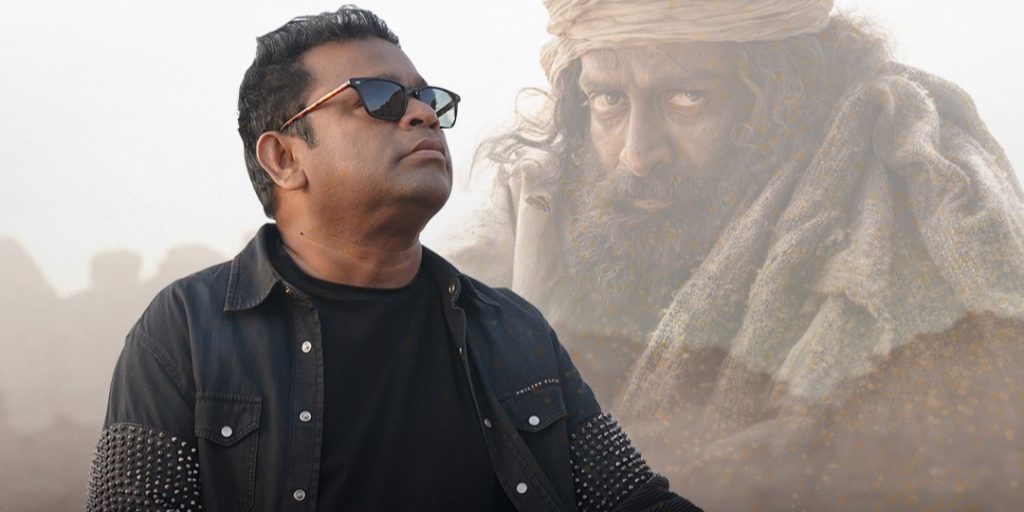 Aadujeevitham, Iruvar, Lagaan, Rang De Basanti, Jodha Akbar… And More: Maestro AR Rahman For Epic Stories (image-X/TheGoatLifeFilm)
Aadujeevitham, Iruvar, Lagaan, Rang De Basanti, Jodha Akbar… And More: Maestro AR Rahman For Epic Stories (image-X/TheGoatLifeFilm)AR Rahman is back with his musical genius in the much-awaited Aadujeevitham (The Goat Life), directed by Blessy and starring Prithviraj. Reuniting with Oscar winner Resul Pookutty, AR Rahman’s melodies have already struck the heartstrings of fans, whether it is the romantic “Omane” or the heart-wrenching call to the Almighty “Periyone”.
Every time you put on your headphones and play a song, what are the chances that it is an AR Rahman song? Known for weaving magic into his melodies, AR Rahman made his entry into the film industry with “Thamizha Thamizha” in the iconic Roja (1992), directed by Mani Ratnam. Questions of being a one-hit wonder surrounded Rahman, but his second film, Pudhiya Mugam (1993), although a flop, became much appreciated for its music.
Carefully choosing his projects, the musical genius established himself in the South film industry, collaborating with renowned directors such as K Balachander and more. With the 1997 classic Iruvar‘s beautiful “Narmugaye” or the exciting “Hello Mr. Ethirkatchi,” Rahman proved his mettle with different genres.
He caught the eye of the Hindi film industry when Bombay (dubbed in Hindi) was released. Ram Gopal Verma’s Rangeela (1995) and the subsequent Dil Se (1998) by Mani Ratnam opened the doors for Rahman, who would then go ahead to create music that will go down in the history of Indian cinema.
@resulp never fails to express his love for The Goat Life!#Aadujeevitham #TheGoatLifeOn28thMarch@DirectorBlessy @benyamin_bh @arrahman @prithviofficial @Amala_ams@Haitianhero @rikaby Talibalbalushi @iamkrgokul pic.twitter.com/kelUZG4Hye
— The Goat Life (@TheGoatLifeFilm) March 14, 2024
After the iconic “Chaiyya Chaiyya” and “Jiya Jale,” came the 1999 film Taal, which further cemented his position as a pan-India music director. Within a span of years, Rahman had produced music that continues to connect with people all over the world. The 2000 hit Alai Payuthey and its subsequent Hindi remake, Saathiya, still make us dance, cry, and fall in love.
One of the milestones of Indian cinema, the Ashutosh Gowarikar directorial Lagaan is renowned not only for the film but also for its excellent music depicting patriotic pride (“Mitwa”), hints of romance (“O Rey Chori”), the plight of villagers praying for rain (“Ghanan Ghanan”), and the fight for freedom (“Chale Chalo”). The entire album of Swades (2004), especially the heart-touching “Yeh Jo Des Hai Mera,” narrates a love story between the people of India and their homeland.
Another film that changed the course of Indian cinema was Rang De Basanti (2006). Its music defined friendship, the love for one’s country, injustice, and the fight against it. Rahman’s musical range does not limit itself to small stories or even stories sheltered within metropolitan cities. With the epic Jodhaa Akbar’s (2008) music, be it the poetical “Inn Lamhon Ke Daaman Mein” or “Jash-E-Bahaaraa,” and the innocent love between two hearts, Rahman once again had music lovers across the nation within his palms.
The legendary director, #ManiRatnam has kind words to say about ‘The Goat Life’ as he shares his admiration for the movie and lauds its direction and stellar performances.
#Aadujeevitham #TheGoatLife #TheGoatLifeOn28thMarch@DirectorBlessy @benyamin_bh @arrahman pic.twitter.com/3T6MkZPxQI
— The Goat Life (@TheGoatLifeFilm) March 27, 2024
Receiving an Oscar for Slumdog Millionaire (2008) was another badge in his career as a musical maestro.
Originally born as AS Dileep Kumar, Rahman has excelled at dipping his melodies into spirituality. Rockstar’s (2011) “Kun Faya Kun,” Delhi 6’s (2009) “Arziyan,” and the soulful “Khwaja Mere Khwaja” from Jodhaa Akbar are considered the trio that can transcend any listener into a state of spirituality, irrespective of their religious backgrounds.
From establishing himself in regional industries, then at a national level, and finally receiving international acclaim, Rahman has proved his genius over and over again. The Oscar, BAFTA, and Grammy winner is not just a music director but a musical talent that has entrenched within India’s musical history. The music for his next album, Aadujeevitham (The Goat Life) where he is as big a character as the protagonist, is the latest testament to his genius.
Dive into the magical realm of romance and experience the beauty of heartfelt emotions like never before!
Experience the lyrical video now, only on our official YouTube channel!https://t.co/l37XwLt8WG@DirectorBlessy @benyamin_bh @arrahman @prithviofficial pic.twitter.com/uHCIymheLl— The Goat Life (@TheGoatLifeFilm) March 25, 2024
